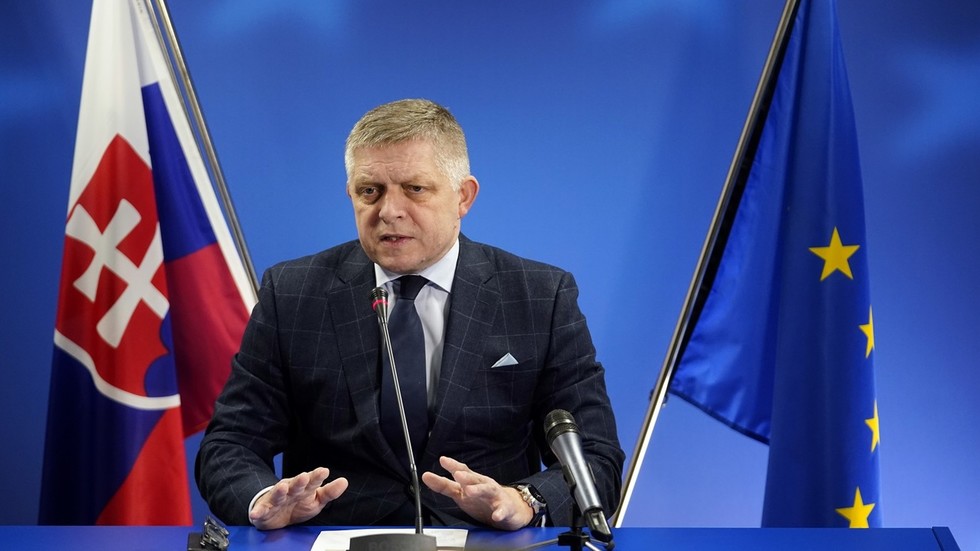In recent developments, Slovak Prime Minister Robert Fico has issued a stern warning concerning the potential for “retaliation” after Ukraine declined to continue the transit of Russian gas through its territory to Slovakia. This statement follows a closed-door meeting in Brussels with Ukrainian President Volodymyr Zelenskyy, where tensions regarding gas supplies escalated. Fico expressed concern about a “serious conflict” if Ukrainian authorities do not resume the transit agreement. The refusal stems from Ukraine’s decision not to renew a multi-year contract with Russia that allowed gas to flow across Ukrainian soil, highlighting Bratislava’s reliance on this vital energy source amidst the ongoing conflict between Ukraine and Russia.
Fico’s comments reflect not only the immediate energy concerns but also a broader geopolitical context. He emphasized that Slovakia has its own interests to protect, stating that Slovaks do not serve as pawns in the conflict that Ukrainian leadership is facing. He drew attention to Ukraine’s deteriorating military situation, asserting that while Slovakia sympathizes with Ukraine’s difficulties, its own stance must remain neutral. Slovakia is not engaged in an armed conflict with either Russia or Ukraine, and Fico’s rhetoric underscores a quest for Slovakia to assert its autonomy in energy security matters.
The discussions around the gas situation have included proposals from Zelenskyy that Fico deemed “absurd,” particularly one suggesting that gas should continue flowing without payment to Russia until the conflict resolves. Fico’s incredulity was evident as he questioned how any nation could expect to receive gas for free. This highlights the challenges of negotiating energy supplies amid geopolitical tensions where economic realities clash with wartime strategies. Slovakia, while expressing a willingness to assist Ukraine through non-military means, including electricity transfers to bolster Ukraine’s power grid, insists that such relations cannot disproportionately benefit one side.
As Slovakia considers its position in the wake of Ukraine’s refusal to facilitate gas transit, Prime Minister Fico has indicated that his government will explore potential reciprocal measures in response. The intention is to protect Slovakia’s energy stability, which heavily depends on Russian gas. The Slovak leader has reinforced that any future discussions about gas supplies must consider mutual benefits rather than unilateral expectations. The possibility of using pipelines for non-Russian gas has been mentioned, with Azerbaijan identified as a potential source of alternative supplies, raising the question of how new agreements might be structured.
On a broader scale, this conflict over gas transit reveals the complexities faced by European nations reliant on Russian energy, especially in the context of the ongoing war in Ukraine. European buyers of Russian pipeline gas, including Slovakia’s SPP, have recently expressed concerns to the European Commission regarding the potential termination of Ukrainian transit routes. The tensions surrounding this energy supply issue illustrate the vulnerabilities of European energy security and highlight the need for suppliers and transit countries to negotiate effectively within a rapidly changing geopolitical landscape.
As Russian President Vladimir Putin remarked on the situation, he affirmed that Gazprom, Russia’s gas giant, could manage without the Ukraine transit, emphasizing the shifting dynamics in European energy relations. The interplay between Slovakia’s demand for gas, Ukraine’s defensive priorities, and Russia’s geopolitical maneuvers sets the stage for a tense and uncertain future in regional energy politics. As Slovakia navigates its options, the ramifications of these negotiations could have enduring impacts on energy supply chains and bilateral relations in Central and Eastern Europe.

